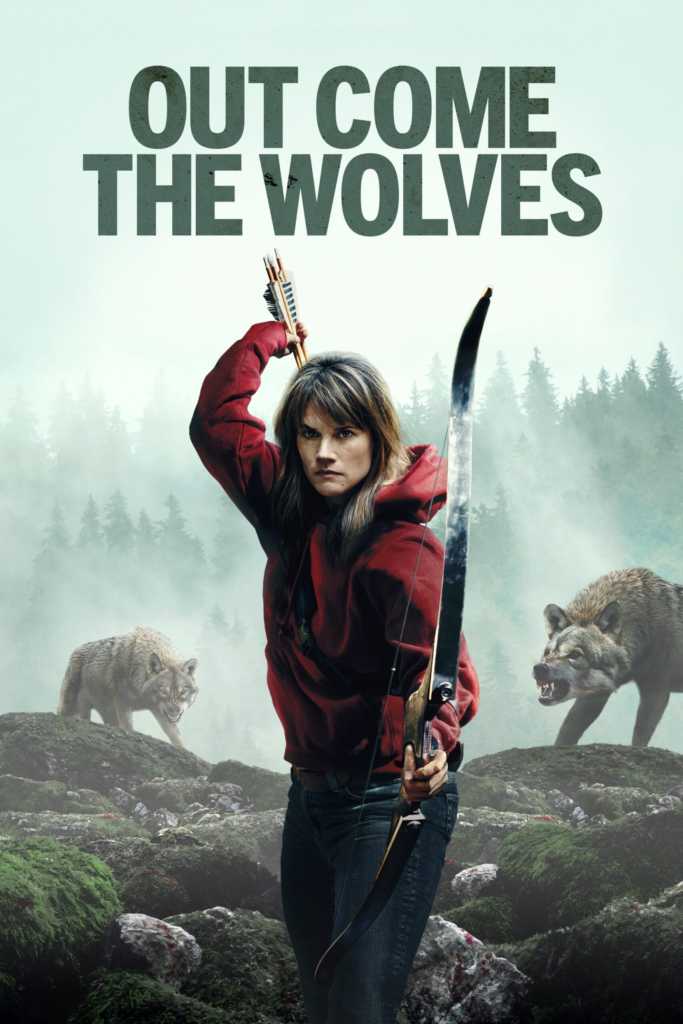Out Come the Wolves Christian Review

“Out Come the Wolves,” directed by Adam MacDonald, is a movie that pulls you into its dark, twisted wilderness, where survival is more than just a physical fight—it’s an emotional and psychological battle as well. The film doesn’t waste time setting up its premise. It throws you right into the thick of it, leaving you to navigate the dangers alongside its characters. But as the story unfolds, you’re left wondering: Is this film really about survival, or is it about something deeper, something more unsettling?
The Predators Among Us
The wolves in this movie aren’t just the sharp-fanged beasts lurking in the woods. They’re a metaphor for the predatory instincts that lie within all of us. The film toys with this idea, hinting at the primal urges that drive us, the ones that we often try to suppress. It’s about the duality of man—the part of us that wants to protect and the part that wants to destroy. In “Out Come the Wolves,” this duality is on full display, though not always in the way you’d hope.
MacDonald gives us a story that, on the surface, is about a group of people trying to survive a terrifying night in the woods. But underneath, there’s a bubbling tension related to toxic masculinity, wounded pride, and the dangerous games people play when they’re pushed to the edge. The movie tries to balance these two elements—the physical threat and the psychological drama—but it doesn’t always succeed. It’s like watching two movies at once: one about the horrors of the wild, and another about the horrors within. And while both are compelling in their own right, the film struggles to marry them into a cohesive whole.
Survival Instincts: Body and Soul
As the characters fight for their lives against the wolves, you can’t help but think about the survival instincts we all possess. The Bible talks a lot about survival, not just in the physical sense but in the spiritual one. In the wilderness, Christ faced temptations that tested His resolve and His faith. In “Out Come the Wolves,” the characters are tested too, though the stakes are different. The film doesn’t delve into the spiritual implications of survival, but it does make you think about what it means to be truly alive.
The performances in the film are raw and intense. You can feel the fear, the desperation, and the anger simmering just beneath the surface. But it’s the fear that stands out the most—the fear of the wolves, yes, but also the fear of what might happen if they lose control. There’s something deeply unsettling about watching people pushed to their limits, about seeing what happens when the thin veneer of civilization is stripped away.
The Two Wolves Within
There’s an old saying about how there are two wolves inside each of us—one good, one bad—and the one that wins is the one you feed. This movie feels like an exploration of that idea, though it never quite makes up its mind about which wolf it wants to focus on. The first half of the movie is all about setting up this internal struggle, this battle between the good and the evil within. It’s about the wounds that fester when pride is hurt, about the violence that erupts when that pride is challenged.
But then the movie shifts gears. The second half is more about physical survival—running from wolves, hiding, and fighting back. It’s as if the film decides that the internal battle isn’t enough, that it needs something more visceral, more immediate, to keep the audience engaged. And while this shift might work for some, it leaves others feeling like the movie has lost its way. The psychological drama of the first half gives way to a more straightforward horror-thriller, and something is lost in the transition.
The Christian Perspective: More Than Meets the Eye
From a Christian perspective, “Out Come the Wolves” is a film that touches on important themes but doesn’t fully explore them. It hints at the battle between good and evil, at the dangers of giving in to our basest instincts, but it never quite gets to the heart of the matter. The Bible teaches us to resist temptation, and to fight against the wolves within, but this film seems content to let those wolves run wild. It’s a missed opportunity to delve deeper, to explore the moral and spiritual implications of the story.
The movie is undeniably entertaining, with its tension, its scares, and its relentless pace. But it feels like it could have been so much more. It’s like eating a meal that satisfies your hunger but leaves you craving something more substantial, something that sticks with you long after the credits roll. The film does what it sets out to do—deliver a thrilling, edge-of-your-seat experience—but it doesn’t leave you with much to chew on afterward.
A Thrill Ride, But Is That Enough?
At the end of the day, “Out Come the Wolves” is a film that delivers on its promise of suspense and horror, but it doesn’t reach for anything beyond that. It’s a movie that keeps you engaged while you’re watching but leaves you wondering what it could have been if it had dared to go deeper. If it had explored the wounded masculinity at its core, if it had taken a closer look at the internal struggles that mirror the external ones, it could have been something truly memorable.
Instead, it plays it safe, sticking to the familiar beats of the survival horror genre. And while there’s nothing wrong with that—after all, not every movie needs to be a deep philosophical exploration—it does leave you with a sense of what might have been. The film is like the wolves it portrays—dangerous, wild, and a little bit hungry. But it’s hungry for more than just flesh; it’s hungry for meaning, for depth, for something that goes beyond the surface.
Final Thoughts
“Out Come the Wolves” is a well-crafted thriller that does what it sets out to do, but it doesn’t leave much of a lasting impression. From a Christian perspective, it’s a film that entertains but doesn’t challenge, that excites but doesn’t provoke deeper thought. It’s a movie that feeds the wolf of entertainment but leaves the wolf of introspection starving.
Rating: 6/10



